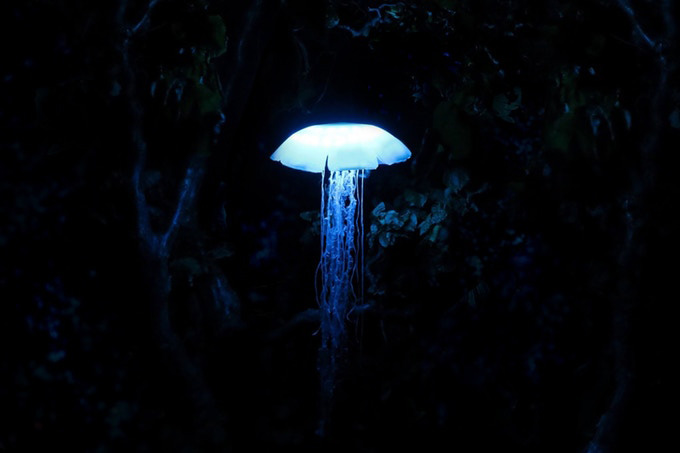
Art has always found inspiration in nature, from prehistoric cave paintings to dynamic modern architecture. In the tradition of bio-inspiration, a German designer named Max Jürgensen has created a stunning lamp that mimics the appearance and fluid movement of a jellyfish. The Jellyfish Motion Lights are part lamp, part installation, and completely captivating.
“I’ve always been intrigued by jellyfish and actually kept some in a special tank on my desk,” Jürgensen told Digital Trends. “Watching their slow moves and unearthly appearance was simply mesmerizing. I wanted to capture this beauty in my first design.”

Figuring out how to re-create the jellyfish’s effortless movement wasn’t easy — it took months of trial and error for Jürgensen to unlock a simple mechanism that worked. But all that effort paid off with a handmade prototype, which he recently took to Kickstarter to promote.
“From casting the silicone to the milled body parts, I put so much love and effort in to this project,” Jürgensen said. “All visible parts are made from silicone to give it that realistic look. The body parts are made from injection-molded plastic. Right now I am working on a mirror-polished metal version. These look like they come right from a science fiction movie and create gorgeous light refraction.”
These tentacular lamps don’t come cheap, though. A handful of early birds can back the Kickstarter campaign and order one around $280. If the lamps launch (Jürgensen is aiming for December 2018) they’ll retail for around $340. However, with a little over half of its $52,500 funding goal reached, Jürgensen isn’t entirely optimistic that the campaign will succeed.
“This is my very first step as lamp designer and I am proud of it, even if the campaign fails, I believe in the idea of motion-miming lights,” he said. “I have a patent and will exhibit my work at design shows. I hope to find in this way a partner I can realize my project with.
“Meanwhile I will work on other designs, I can produce without the help from others,” he added. “I am a restless mind and have tons of ideas for new lamps that haven’t been there before.”


